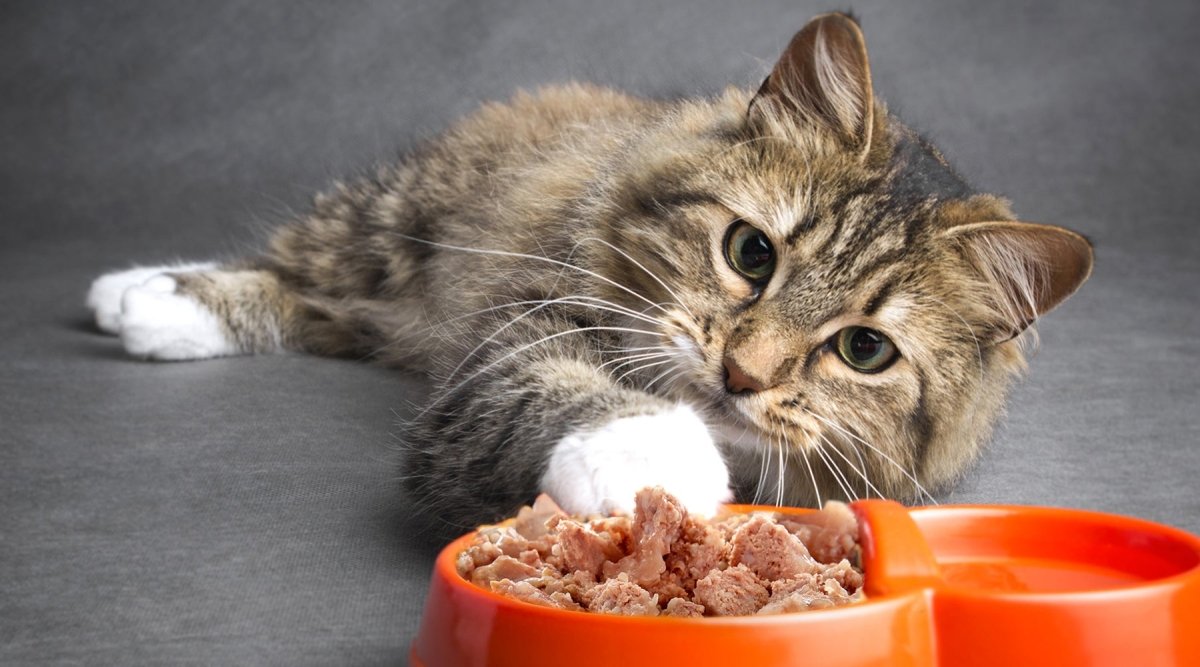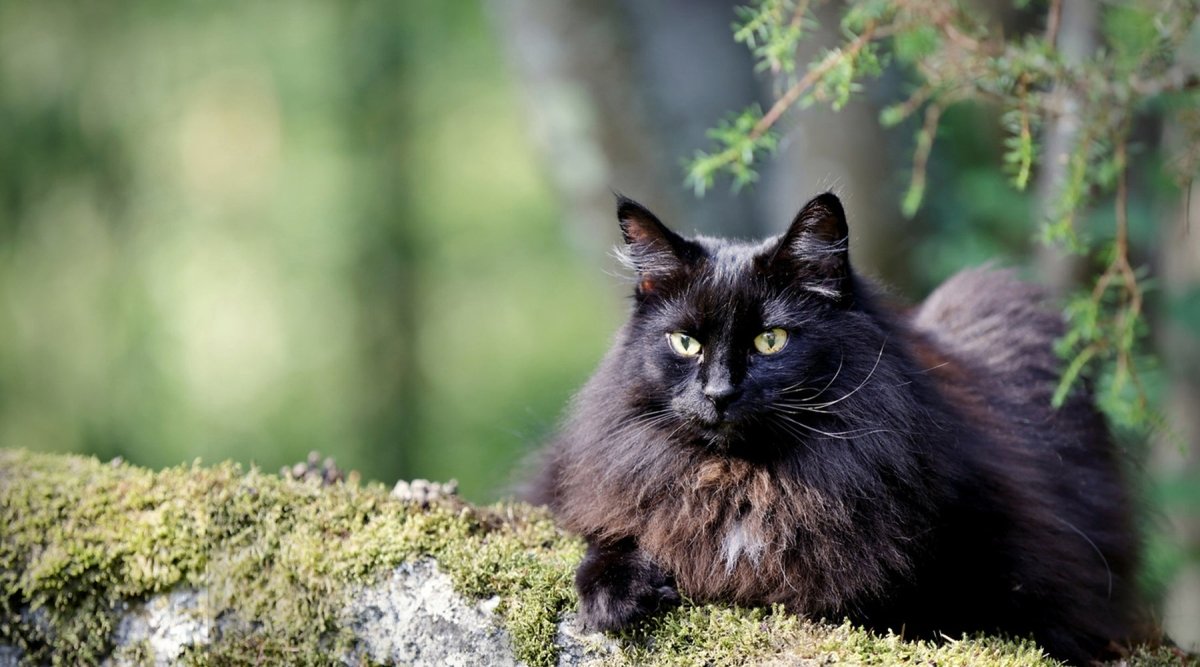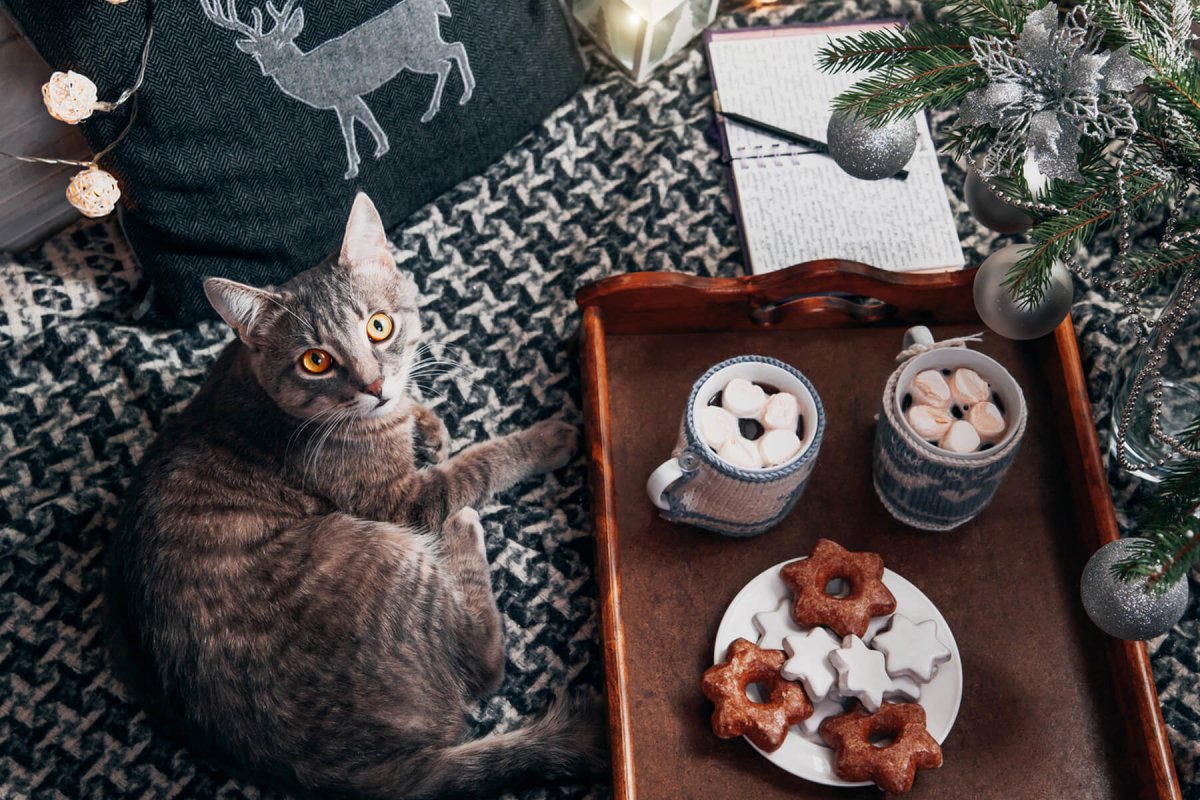Cats are one of those animals that often give their owners a headache when it comes to food intake. They can be quite picky about their food and even go on hunger strike. However, if your cat usually eats very well, you should pay attention if it doesn't touch its food for a few days. In this article, you can find out the reasons why cats may stop eating and how you can stimulate the appetite of sensitive velvet paws.
Reasons and causes - Why does a cat refuse to eat?
Many cat owners are familiar with the problem: the cat no longer eats or eats very little. If your cat refuses to eat, there can be many different reasons - from harmless disinterest to a slight stomach upset to a serious illness.
Especially with outdoor cats, a dangerous illness does not always have to be the reason for skipping a meal. A recently caught mouse or being fed by a neighbor are very common and can lead to cats boycotting the food in their own bowl.
Character traits or situational changes can also upset a four-legged friend's stomach, as many people know only too well.
Temporary reasons for loss of appetite in cats
- Stress, also with other conspecifics
- Moving to a new home
- Unfamiliar surroundings
- Uncertainty
- Grief for a caregiver or an animal
- Being alone
- Visit to the vet
- Feeding of outdoor pets by neighbors
- Diminishing sense of smell and taste in old age
These are all generally harmless reasons why your cat is eating poorly or not eating at all. After a few skips, normal eating behavior should return. If it eats small amounts from time to time or likes to eat treats, you should observe whether it shows any other physical symptoms.
If the cat does not want to eat, is emaciated and only sleeps, you should have a vet or veterinary practitioner look at your pet's state of health. If your cat also doesn't feel well or is even slightly unwell, this could be due to health factors. You should play it safe here!
Cat no longer eats - physical causes
- Hormonal disorders
- Digestive problems
- Poisoning
- Food intolerance or allergy
- Kidney or liver disease
- Thyroid problems
- Infection of the pancreas
- Medication
- Acute illnesses such as fever, colds, cat flu
- Parasites
- Dental problems
Some of these health problems are accompanied by other symptoms such as fever, emaciation, severe fatigue and also fecal problems. We recommend that you always consult a vet or veterinary practitioner to clarify your cat's state of health.
In addition to health problems, the food may also be the cause. Does your cat smell the food but won't eat? Various inconsistencies can prevent sensitive animals from eating. If you also have a picky cat at home, you will certainly know how difficult it is to find the right food for your four-legged friend. Whether it is the consistency, the smell or certain ingredients, it is rarely possible to find a clear reason why cats refuse food. Unfortunately, there is nothing left to do but try it out. Depending on the cat's sensitivity, this can become quite tedious until the right food is found.
Cat smells the food but doesn't eat
- Unfamiliar food
- Too little variety
- Overfeeding
- Sensitivity to ingredients
- Consistency
- Spoiled food
- Lack of freshness
What to do if your cat no longer has an appetite?
Once physical and psychological causes have been ruled out, there are a few things you can do to help your cat regain its appetite. Before you start trying out different cat foods, try to spice up the current food with tasty additives. Unfortunately, you have to try to trick the four-legged friends if they eat badly or even refuse the cat food.
The following appetite stimulants can solve the problem of your cat's lack of appetite:
- Salmon oil: Mix a little oil, preferably salmon oil for cats, into the food. Salmon oil has an intense fishy taste and adds a little variety to the daily food bowl. It also provides your cat with important omega-3 fatty acids.
- Tuna juice: Tuna juice from canned tuna is also suitable as an appetizer. Many cats love this fishy taste.
- Yoghurt: Dairy products such as yoghurt or granular cream cheese are other candidates to make cat food tasty and provide additional calcium for the cat's joints.
- Mix in fresh or cooked meat: Chicken fillet, beef goulash or minced beef will please many cats' palates.
- Baby food from jars: There are different types of baby food. However, make sure you use the ones that are compatible with cats.
- Heat cat food: To intensify the smell, you can heat the wet food slightly. This makes the smell of individual components even more intense.
- Awaken the prey drive: You can use various search games and snack balls to stimulate your cat's hunting instinct and encourage them to eat.
However, all these additives should only be fed if your cat has no allergies or intolerances. Otherwise, use foods that your cat can tolerate.
Is your velvet paw generally a poor eater? Then you should spice up the food with additional nutrients. That way, despite its small portion, it will consume more nutrients and you can prevent deficiency symptoms. Supplements for the immune system and taurine for cats in particular should also be fed.
How long can a cat go without food?
Your cat is not eating? How long should you wait before visiting the vet? Cats should not go on hunger strike for long. While dogs and other animals can sometimes go several days without eating, cats should be treated after 24 hours at the latest. If your four-legged friend refuses to eat, we strongly recommend a visit to the vet.



